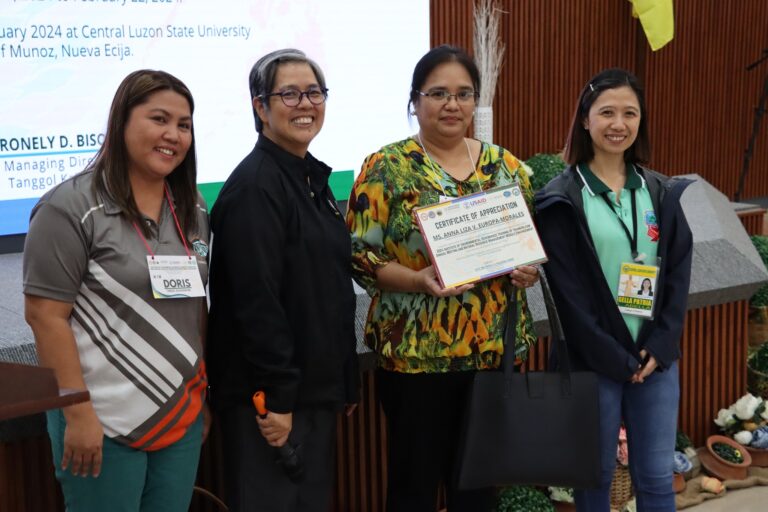- February 20, 2024
Day 2 of the 2024 Institute of Environmental Governance Training of Trainers cum Annual Meeting and Natural Resource Management Module Enhancement
The second day of the 2024 Institute of Environmental Governance Training of Trainers cum Annual Meeting and Natural Resource Management Module Enhancement of the Tanggol Kalikasan, Inc. commenced at CLSU – R&E Amphitheater on February 20, 2024. The program started with a workshop focused on the state of the local environmental governance in the West Philippine Sea Region, Pacific Sea Board Region, Visayas Region, and Mindanao Region involving concerned IEG Centers of Higher Education Institutes.
During the workshop, participants discussed localized environmental governance concerns, including lack of funding support, technical capabilities, and the implementation and policy enforcement challenges. They also tackled the goals to overcome these challenges, such as collaborations between stakeholders, capacity building of stakeholders, along active involvement of the IEG centers and the LGU on national and local environmental initiatives.
Distinguished guest speakers provided insights into the State of the Environment in the Philippines. Specifically, Forester Jeric I. Angeles, Senior Forest Management Specialist of DENR-FMB, discussed the State of the Forest and Watershed in the Philippines. Meanwhile, Mr. Rene Zaldy Porlaje, Senior Aquaculturist and Chief of the CRM Section Bureau of DA-BFAR talked about the State of Fishery Resources in the Philippines. Mr. Romulo B. Zipagan, Senior Environmental Specialist of DENR-EMB, conferred about the State of the Brown Environment in the Philippines. Lastly, Ms. Angie Lou Alcantara, Ecosystem Management Specialist of DENR-BMB, discussed the State of the Wildlife Resources and Protected Areas in the Philippines.
Furthermore, Ms. Anna Liza Europa-Morales, IEG Coordinator of the University of Northern Philippines, discussed the Seven Environmental Principles that provide a framework for understanding and addressing environmental challenges. Quoting Robert Swan, she emphasized the importance of individual and collective responsibility in safeguarding the planet, stating “The greatest danger to our planet is the belief that someone else will save it.” Encouraging environmental stewardship, she urged participants to integrate these principles into decision-making processes to promote sustainable and harmonious coexistence with the natural world.
During the afternoon session, the discussion focused on pluvial areas in terrestrial domains, environmental management, and administration. Dr. Emma L. Ballad, Agricultural Center Chief II of DA-BFAR Region 2, offered valuable insights regarding the ecosystem approach for fisheries management and fisheries development programs. Forester Oliver C. Barrientos of DENR-FMB, elaborated on forest resources and sustainable watershed management.
Concluding the session, Mr. Ernie Urriza, Senior GIS Coordinator of Conservation International, shared his expertise on the Landscape and Ecosystem Approach for Integrating Land and Resource Use Management in LGU Planning. He explained the application of GIS mapping for land classifications, and the formulation of action plans such as CLUP.










